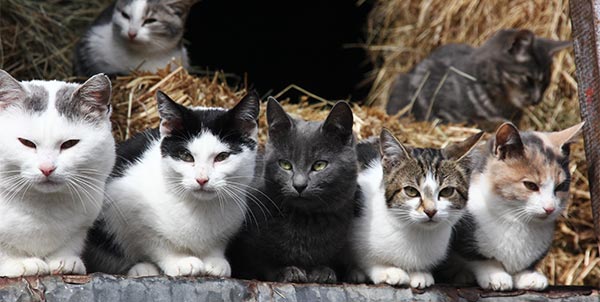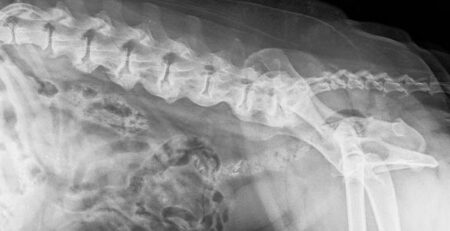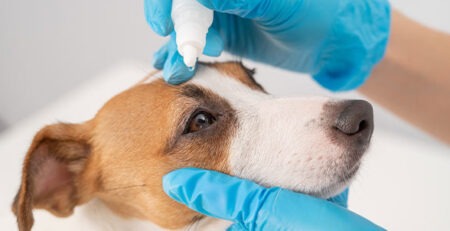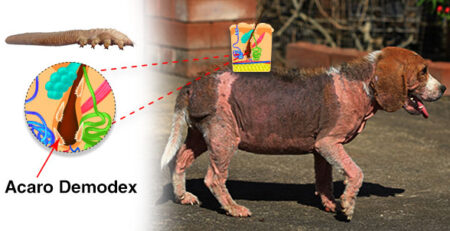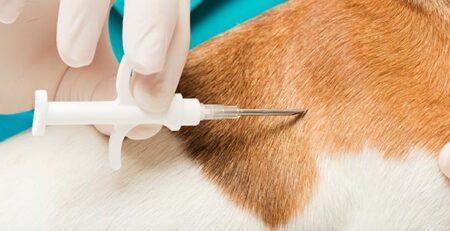FIP or infectious cat peritonitis is a very high mortality viral disease caused by the FCoV virus that lives in the intestines of our cats.
In most cats, the virus does not cause pathology.
Only a percentage of infected cats develop the disease.
In fact, most individuals who come into contact with the virus remain asymptomatic.
Infected but clinically healthy cats remain carriers throughout their lives and eliminate the virus through feces, infecting other cats.
Cat-to-cat transmission of the virus occurs through feces and by contamination of the environment.
It follows, of course, that the spread of the virus and the likelihood of infection increase proportionately in environments where there are many animals, such as colonies or farms.
The possibility of developing FIP and its clinical manifestation depend on the type of immune response of the infected cat
Unfortunately, where the cat’s immune response is inadequate, the onset of the disease generally has ominous outcomes.
The same asymptomatic cat, may manifest the disease following a stressful event, such as the introduction of a new individual into the community, a surgical procedure such as neutering, or spaying.
Stress is also a condition known to predispose to the development of FIP
Treatment or control of stress is therefore an important factor in controlling the disease.
Conditions that further may facilitate the onset of the disease are induced by race (example Bengal), age of the subject (young people are more affected).
FIP: two clinical forms
-
- wet or exudative form: appearance of effusion with the characteristic accumulation of fluid usually in the abdomen, resulting in swelling and ascites. The course is acute, the outcome fatal. In case of HUMID FIP, the veterinarian will try to aspirate the fluid to facilitate the kitty’s breathing and various functions. Unfortunately, the liquid can reform quite quickly.
- dry or nonexudative form: symptoms, nodular lesions in one or more organs, may occur months or years after infection. It has a chronic course, which is also usually inauspicious.
Symptoms of FIP
In both forms there are other nonspecific symptoms such as fever, slimming, stunted growth, neurological and/or ocular symptoms, weight loss and anorexia, and lethargy.
In fact, there are no effective and safe vaccines for FIP so the only way to prevent FIP, in addition to adherence to good hygienic standards (FCoV is sensitive to most common disinfectants and bleach) is to lower the probability of virus mutation and thus lower or better eliminate the viral load.
Is there a cure for FIP?
An experimental drug (the molecule GC373 and its soluble derivative GC376) would act by blocking viral replication.
A study conducted in 2016 and funded by the National Institute of Health (Maryland, USA) showed some success: some of the sick cats given the drug recovered after about 20 days.
However, despite encouraging results, GC373 and GC376 have not been approved so far.
Prevention, therefore, always remains the best strategy you can implement.
Preventive actions
Litterbox
It should be kept away from water and food and cleaned daily, preferably several times a day.
When you replace it, it is recommended to disinfect the cassette carefully and then rinse it well to remove residues of the products used.
In case there are several cats in the house, each cat should have its own litter box.
Household hygiene
A constant routine of cleaning and disinfecting our cat’s toys, kennel and other items is highly recommended. In case, you have lost a cat to FIP, know that the virus survives in the environment for a few weeks. Experts recommend waiting at least 30 days to adopt another cat and bring it into the home.
Health prophylaxis
Have regular checkups with your veterinarian to monitor your feline’s health and keep vaccinations in order by establishing a vaccination schedule. He takes care of his nutrition, preferring quality food.
If you suspect your cat is suffering from FIP, at our facility you can have a complete checkup and the necessary clinical examinations.
We would also like to remind you that in case of need and urgency Clinica La Veterinaria is always open, every day including holidays and with First Aid service from 8 pm to 8 am.
For the joy of seeing them HAPPY

